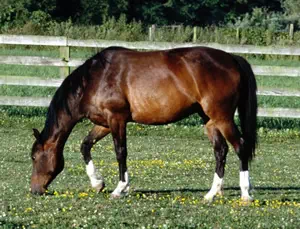|
 ILLINOIS ILLINOIS
Carcass Disposal State Regulations
General
Depending on circumstances, domestic animal (production or companion animals) carcass disposal may be regulated by a state's solid waste, medical waste, agriculture, or emergency management regulations. If your state does not provide specific guidance or regulations relating to large animal carcass disposal, check with your local health department, or city/county laws and ordinances.
In addition, during emergency situations and disasters (e.g., blizzards, floods, hurricanes, mass die-offs, etc.), consult with your local emergency officials, your state emergency planning agency, or the state veterinarian, to determine approved methods of carcass disposal.
Applicable Agencies and Regulations for Illinois
Illinois Department of Agriculture
Address: State Fair Grounds; P.O. Box 19281; Springfield, IL 62794-9281
Contact Information: http://www.agr.state.il.us/about/contacts.html
Rules and Regulations: Title 8, Chapter 1, Subchapter b, Part 90:Illinois Dead Animal Disposal Act. Dead animals may be picked up by a licensed renderer or transported to a landfill that is open and willing to accept animals. Section 90.110 describes on farm disposal options. Disposal options addressed:
- Rendering: Picked up by a licensed renderer.
- Landfilling: Owner transportation to a landfill is described in Section 90.105.
- Burial: Burying on the premises owned or operated by the owner of the dead animal. Location shall be in an area where runoff will not contaminate water supplies or allow leachate to discharge into streams, ponds or lakes. Dead animals shall not be buried less than 200 feet from any existing residence not occupied by the owner of the animal. There are limitations to the ratio of pounds of dead animal to square foot of surface area and to the amount buried in each site location. Lime or other chemical agent shall not be used to prevent decomposition. Burial site locations shall be available for inspection by Department personnel during normal working hours.
- Burning: No open burning will be permitted. Any disposal by burning must be performed with an incinerator that is in compliance with the Illinois Environmental Protection Act.
- Composting: Gives specific information on how to compost (1) poultry in Section 90.110 c, (2) fish in Section 90.110 d, (3) swine in Section 90.110 e, (4) sheep, cattle and goats in Section 90.110 f and (5) sheep and goat offal in Section 90.110 g.
More Information
Potentially Infectious Medical Waste: A Summary of Regulatory Requirements for Livestock Producers. Title XV of the Illinois Environmental Protection Act (Act) establishes statutory requirements to ensure that Potentially Infectious Medical Waste (PIMW) will be handled in a safe and responsible manner.
The Cornell Waste Management Institute (CWMI) maintains a database of carcass disposal state regulations promulgated by state environmental, agricultural and other agencies. There may be additional information on this site, not found on VetCA, that can be helpful to veterinarians, ranchers and farmers. Click here to access the CWMI information for Illinois.

Choose another state
|

